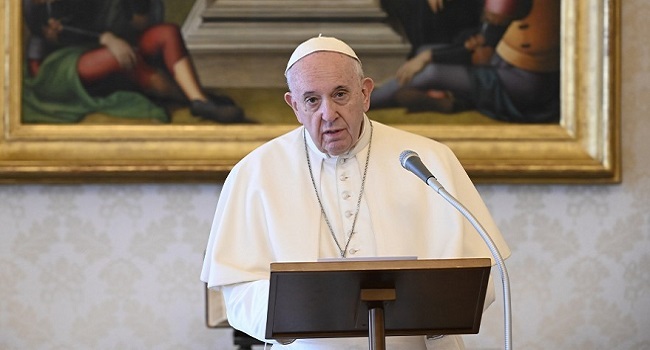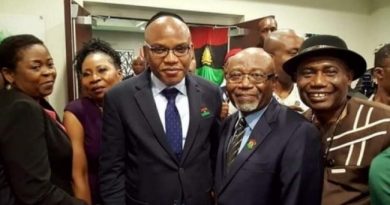Respecting Other People’s Religious Faith in Nigeria
Respecting Other People’s Religious Faith in Nigeria: A Path to Peace and Unity
NigeriaNigeria is a diverse countrysadiverse country with multiple ethnic groups, languages, and religious beliefs.
The two dominant religions Christianity and Islam along with traditional African religions, have coexisted for centuries. However, religious intolerance remains a significant challenge, often leading to conflicts, violence, and division.
Respecting other people’s religious faith is essential for national unity, peace, and social harmony. When people of different faiths live together in mutual respect and understanding, society thrives. This article explores the importance of religious tolerance in Nigeria, the challenges of religious intolerance, and practical ways to foster respect for diverse faiths.
The Importance of Religious Tolerance
Religious tolerance is not just about peaceful coexistence; it is also about creating an environment where individuals can practice their faith freely without fear of discrimination or persecution. Respecting other people’s religious beliefs has several benefits:
1. Promotes Peace and Unity
Religious intolerance has been a major cause of violence in Nigeria, from clashes between Christian and Muslim communities to extremist attacks by groups like Boko Haram. When people respect each other’s faith, it reduces tensions and promotes national unity.
2. Strengthens Social and Cultural Bonds
Nigeria is a nation of mixed families, friendships, and business relationships that cut across religious lines. Respecting different religious beliefs helps to strengthen these relationships and prevents unnecessary conflicts.
3. Encourages Freedom of Worship
The Nigerian Constitution guarantees freedom of religion, allowing every citizen to practice their faith without restriction. When individuals and communities respect this right, it upholds the nation’s democratic principles.
4. Boosts National Development
Religious conflicts disrupt economic activities, education, and governance. When there is peace and mutual respect among religious groups, the country can focus on development rather than conflict resolution.
Challenges of Religious Intolerance in Nigeria
Despite the benefits of religious tolerance, Nigeria has witnessed numerous cases of religious conflicts, discrimination, and persecution. Some of the major challenges include:
1. Religious Extremism
Some groups or individuals promote extreme religious views, believing that their faith is superior to others. This has led to violent attacks, including terrorism by Boko Haram, which has caused thousands of deaths and displaced millions.
2. Political Manipulation of Religion
Politicians often use religion to divide people for political gain. By exploiting religious sentiments, they create divisions that fuel intolerance and violence.
3. Discrimination in Employment and Public Services
There have been cases where people are denied job opportunities, promotions, or access to education based on their religion. This fosters resentment and weakens national unity.
4. Destruction of Places of Worship
Religious intolerance has led to attacks on churches, mosques, and traditional shrines. Such acts not only cause physical destruction but also deepen hatred between religious communities.
How to Promote Respect for Religious Diversity
1. Education and Awareness
Teaching religious tolerance in schools, universities, and religious centers is crucial. People should be educated on the importance of respecting different beliefs and the dangers of intolerance.
2. Interfaith Dialogue and Collaboration
Encouraging communication between religious leaders and followers helps to break down misunderstandings and build trust. Religious groups should work together on community projects that benefit all, regardless of faith.
3. Legal Protection and Enforcement
The Nigerian government must strictly enforce laws that protect religious freedom and punish those who incite violence or discriminate based on religion. Justice must be served in cases of religious conflict.
4. Leading by Example
Religious leaders, politicians, and community elders must set an example by promoting tolerance and respect in their words and actions. If leaders preach peace, their followers are more likely to practice it.
5. Rejecting Hate Speech and Religious Bias
Social media and public platforms should not be used to spread religious hate speech. Individuals should verify information before sharing and avoid statements that can cause religious division.
6. Encouraging Mixed-Religious Friendships and Families
Many Nigerians have friends, neighbors, and family members of different religions. Instead of seeing these differences as a problem, people should embrace them as a strength. Respecting and celebrating each other’s faith can foster unity.
In conclusion Nigerians must learn that respecting other people’s religious faith in the country is essential for peace, unity, and national progress. Religious intolerance has caused too much harm, but by embracing education, dialogue, legal protection, and mutual understanding, Nigerians can build a society where everyone is free to practice their faith without fear.
A united Nigeria is only possible when all citizens recognize and respect religious diversity. It is time to rise above religious divisions and focus on what unites us as a nation our shared humanity, values, and dreams for a better future.
Nigeria is a great nation under God, therefore, we must shun religious anachronism and embrace religious tolerance in all ramifications.




